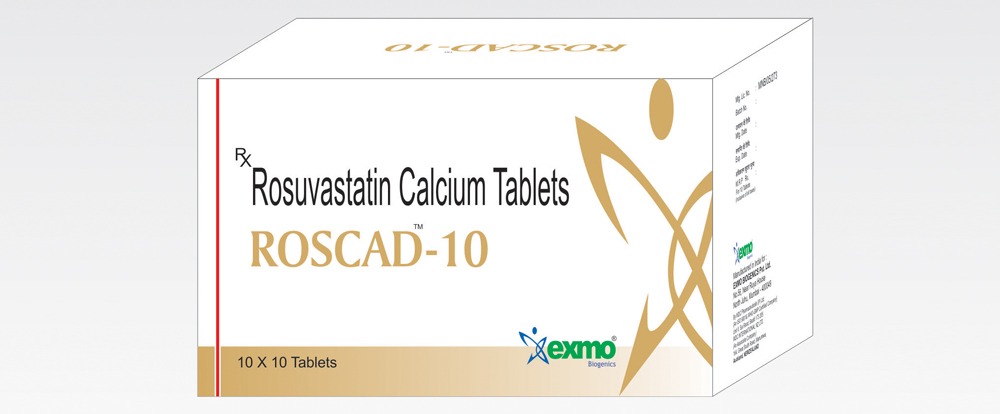
Dosage Form
CFilm-coated tablet

Dosage Form
CFilm-coated tablet
Indications
Hyperlipidemia and Mixed Dyslipidemia
ROSCAD is indicated as adjunctive therapy to diet to reduce elevated total cholesterol (total-C), LDL cholesterol (LDL-C), apoprotein B (ApoB), non-high-density lipoprotein cholesterol (nonHDL-C), and triglycerides (TG) and to increase high-density lipoprotein cholesterol (HDL-C) in adult patients with primary hyperlipidemia or mixed dyslipidemia. Lipid-altering agents should be used in addition to a diet restricted in saturated fat and cholesterol when response to diet and non-pharmacological interventions alone has been inadequate.
Pediatric Patients 10 to 17 Years of Age with Heterozygous Familial Hypercholesterolemia (HeFH)
Adjunct to diet to reduce total-C, LDL-C and ApoB levels in adolescent boys and girls, who are at least one year post-menarche, 10-17 years of age with HeFHif after an adequate trial of diet therapy the following findings are present: LDL-C > 190 mg/dL or >160 mg/dL and there is a positive family history of premature cardiovascular disease (CVD) or two or more other CVD risk factors.
Hypertriglyceridemia
ROSCAD is indicated as adjunctive therapy to diet for the treatment of adult patients with hypertriglyceridemia.
Primary Dysbetalipoproteinemia (Type III Hyperlipoproteinemia)
ROSCAD is indicated as adjunctive therapy to diet for the treatment of patients with primary dysbetalipoproteinemia (Type III hyperlipoproteinemia).
Homozygous Familial Hypercholesterolemia
ROSCAD is indicated as adjunctive therapy to other lipid-lowering treatments (e.g., LDL apheresis) or alone if such treatments are unavailable to reduce LDL-C, total-C, and ApoB in adult patients with homozygous familial hypercholesterolemia.
Slowing of the Progression of Atherosclerosis
ROSCAD is indicated as adjunctive therapy to diet to slow the progression of atherosclerosis in adult patients as part of a treatment strategy to lower total-C and LDL-C to target levels.
Primary Prevention of Cardiovascular Disease (CVD)
In individuals without clinically evident coronary heart disease but with an increased risk of CVD based on age >50 years old in men and >60 years old in women, hsCRP >2 mg/L, and the presence of at least one additional cardiovascular disease risk factor such as hypertension, low HDL-C, smoking, or a family history of premature coronary heart disease, ROSULIP is indicated to:
• reduce the risk of stroke
• reduce the risk of myocardial infarction
• reduce the risk of arterial revascularization procedures
Limitations of Use
Rosuvastatin has not been studied in Fredrickson Type I and V dyslipidemias.
Contraindications
• Patients with a known hypersensitivity to any component of this product. Hypersensitivity reactions including rash, pruritus, urticaria and angioedema have been reported with rosuvastatin
• Patients with active liver disease, which may include unexplained persistent elevations of hepatic transaminase levels
• Women who are pregnant or may become pregnant
• Nursing mothers